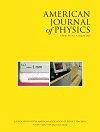半定量推理可以帮助学生跟踪能源和理解保护:可持续能源课程的例子和结果
IF 0.9
4区 教育学
Q3 EDUCATION, SCIENTIFIC DISCIPLINES
引用次数: 0
摘要
在复杂和耗散的环境中跟踪能源流动的能力对于理解可持续能源和气候变化的许多方面至关重要。传统的物理教学在很大程度上无法培养这种能力。这项工作认为,造成这一缺陷的一个可能原因可能是过度强调有助于量化计算的案例。根据可持续能源课堂上一小部分大学物理学生的例子和数据,它提出,使用适当的视觉和/或可操作的表示进行半定量能量跟踪的实践,可以帮助培养学生在现实世界耗散环境中使用能量推理的技能。本文章由计算机程序翻译,如有差异,请以英文原文为准。
Semiquantitative reasoning can help students track energy and understand conservation: Examples and results from a course on sustainable energy
The ability to track flows of energy in complex and dissipative contexts is essential to understand many aspects of sustainable energy and climate change. Traditional physics instruction largely fails to develop that ability. This work argues that one plausible contributor to this deficiency could be an overemphasis on cases that lend themselves to quantitative calculation. Drawing on examples and data from a small sample of college physics students in a class on sustainable energy, it proposes that practice in semiquantitative energy tracking, using suitable visual and/or manipulable representations, can help develop students' skills in using energy reasoning in real-world, dissipative contexts.
求助全文
通过发布文献求助,成功后即可免费获取论文全文。
去求助
来源期刊

American Journal of Physics
物理-物理:综合
CiteScore
1.80
自引率
11.10%
发文量
146
审稿时长
3 months
期刊介绍:
The mission of the American Journal of Physics (AJP) is to publish articles on the educational and cultural aspects of physics that are useful, interesting, and accessible to a diverse audience of physics students, educators, and researchers. Our audience generally reads outside their specialties to broaden their understanding of physics and to expand and enhance their pedagogical toolkits at the undergraduate and graduate levels.
 求助内容:
求助内容: 应助结果提醒方式:
应助结果提醒方式:


